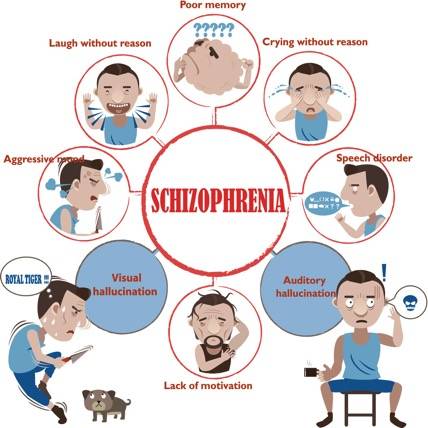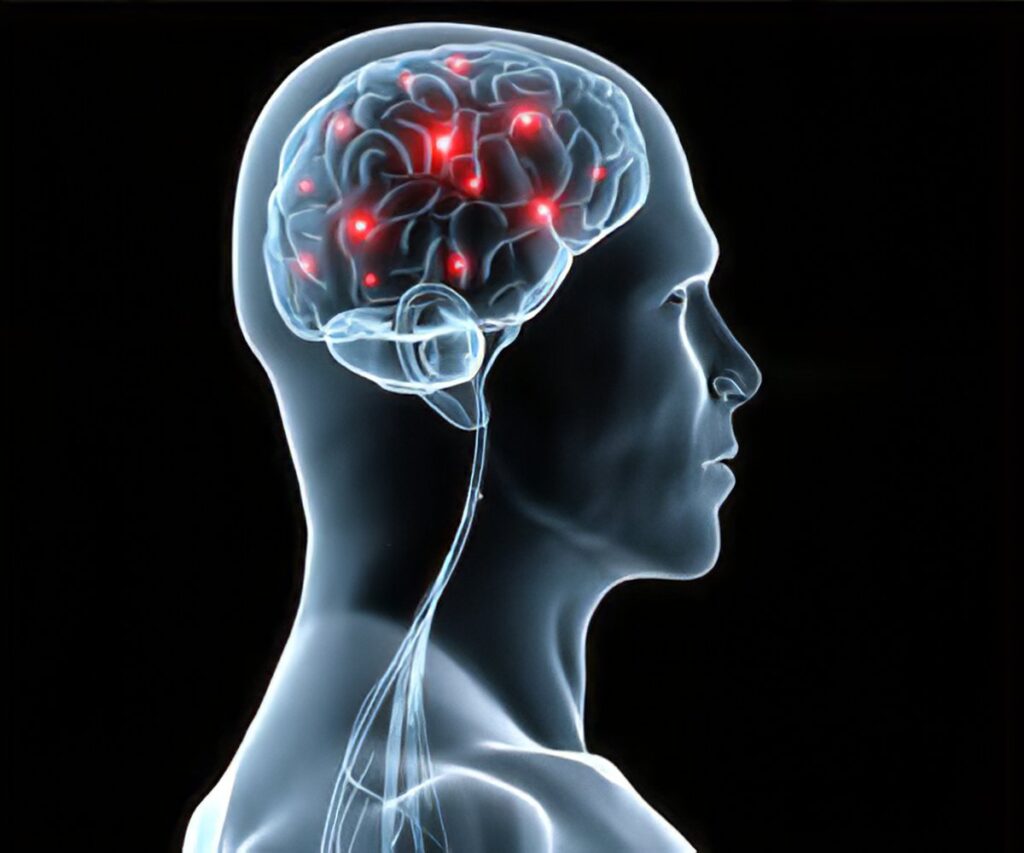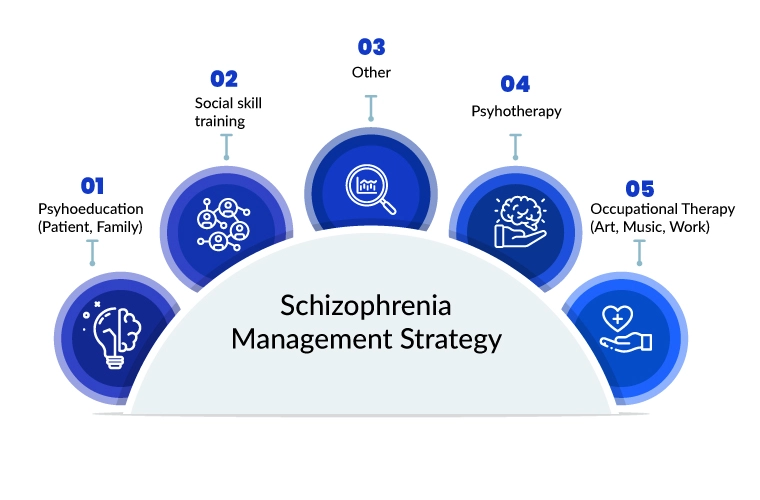What is Schizophrenia

A difficult and sometimes misdiagnosed mental illness that affects millions of individuals worldwide is schizophrenia.
Significant disturbances in thought, perception, and emotional control are its defining characteristics.
Even though the ailment is common, there is still a lot of stigma and false information about it.
This article is to give a thorough understanding of schizophrenia by examining its causes, symptoms, and effects on the body.
What Is Mental Illness?
Chronic schizophrenia is a mental illness that causes profound changes in an individual’s thoughts, feelings, and behaviour.
As a psychotic disorder, it is characterised by a detachment from reality. Delusions, disorganised thought patterns, hallucinations, and severe emotional problems are all possible in people with schizophrenia.
Important Schizophrenia Symptoms

Generally speaking, there are three primary categories of schizophrenia symptoms:
Positive Symptoms: These are extra actions that are uncommon in the general public. Among them are:
Hallucinations: Perceptual events in which there is no outside stimulus, such as hearing voices that are not heard by others.
Delusions: Firmly held untrue beliefs that defy logic or contradicting information, such as the conviction that one is being persecuted or possesses extraordinary talents.
Disorganised Thinking: Incoherent or erroneous speech and mental habits that impede understanding and communication.
Negative symptoms: They show a reduction in or absence of regular functions. Among them are:
Apathy: A lack of drive or enthusiasm for routine tasks.
Analogia: Reduced speech production, which corresponds to a decrease in mental productivity.
Reduced capacity for enjoyment or interest in once-enjoyed activities is known as anhedonia.
Reduced participation in social connections and interactions is known as social withdrawal.
Symptoms of cognition: These have an impact on cognitive functions and memory, including:
Having trouble organising, making decisions, and planning is a sign of impaired executive functioning.
Problems sustaining focus on tasks are known as attention deficits.
Problems with working memory: unable to temporarily store and manipulate information.
Reasons and Danger Elements

Although the precise cause of schizophrenia is still unknown, research points to a possible genetic, biochemical, and environmental mix as the likely culprit:
hereditary Factors: There appears to be a hereditary tendency for schizophrenia as it tends to run in families.
However, more than one gene may be involved in the risk; no single gene is to blame.
Neurobiological Factors: Unbalances in neurotransmitters and the anatomy of the brain are important.
The condition has been associated with abnormalities in the prefrontal cortex, the hippocampus, and dopamine and glutamate imbalances.
Environmental Factors: Stress, starvation, and infection exposure during pregnancy may raise the risk.
Furthermore, in predisposed individuals, cannabis usage during adolescence has been linked to an increased chance of developing schizophrenia.
Developmental Factors: Premature birth or complications related to oxygen deprivation during pregnancy can also play a role in the development of schizophrenia.
The Effects of Schizophrenia on the Human Body

The consequences of schizophrenia go beyond mental health; they can affect other facets of physical health and general functioning:
Neurological Impact: Reduced grey matter volume in specific brain regions and larger ventricles, or fluid-filled pockets, are examples of structural brain abnormalities associated with schizophrenia.
The disorder’s behavioural and cognitive symptoms are connected to these alterations.
Endocrine and Metabolic Effects: Metabolic syndrome, which encompasses diabetes, obesity, and dyslipidaemia (abnormal lipid levels), is frequently experienced by people with schizophrenia.
Antipsychotic drugs may contribute to weight gain and insulin resistance, which is one reason for this.
Immune System Dysfunction: New research points to a possible link between altered immune system functioning and schizophrenia.
The onset and course of the illness may be influenced by autoimmune reactions and inflammatory processes.
Cardiovascular Health: People with schizophrenia are more likely to develop cardiovascular illnesses as a result of metabolic syndrome, a sedentary lifestyle, and poor dietary habits.
To control these hazards, action and routine monitoring are essential.
Gynaecological and Sexual Health: Women with schizophrenia may experience particular difficulties with their reproductive systems, such as irregular menstrual cycles and pregnancy-related issues. Sexual dysfunction is a potential side effect of antipsychotic medicines for men.
Social and Occupational Impact: Schizophrenia can severely impact an individual’s ability to maintain employment, engage in social activities, and live independently.
This can lead to increased rates of homelessness, poverty, and social isolation.
Treatment and Management

Schizophrenia is typically managed through a combination of medication, psychotherapy, and social support:
Medications: Antipsychotic drugs are the cornerstone of treatment. They help to manage symptoms by influencing neurotransmitter activity in the brain.
Both first-generation (typical) and second-generation (atypical) antipsychotics are used, with the latter often preferred due to a potentially better side effect profile.
Psychotherapy: Cognitive-behavioral therapy (CBT) can help individuals address distorted thinking patterns and develop coping strategies.
Supportive psychotherapy provides emotional support and helps with daily functioning.
Social and Vocational Rehabilitation: Individuals can live better and more satisfying lives with the support of programs that emphasise community inclusion, vocational rehabilitation, and social skills training.
Family assistance: Involving and educating family members can help to enhance results and offer vital assistance. Support groups and family therapy can also be very helpful in managing the illness.
Lifestyle Adjustments: Resolving lifestyle concerns including nutrition, physical activity, and drug abuse can help lessen the severity of some physical health problems linked to schizophrenia.

In summary
Schizophrenia is a complex illness that impacts not only the mind but also a number of bodily systems and daily activities.
Recognising the complexities of the illness can assist individuals afflicted live better lives, encourage more efficacious treatment, and lessen stigma.
Future progress in medical and psychological care, along with ongoing research, may lead to improved treatment and even a cure. Individuals diagnosed with schizophrenia can lead fulfilling and productive lives with the right support and treatment.



